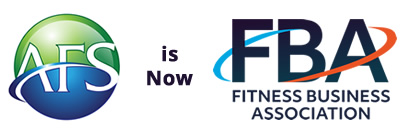 By Katie Zacharkiw, Special AFS Contributor
By Katie Zacharkiw, Special AFS Contributor
Are you a gym or fitness studio owner looking to expand your class offerings to kids? It’s a big market that can bring in a lot of revenue, but managing them isn’t as straightforward as managing your adult classes is. When your clients are underage, there are extra steps to your basic operations such as client tracking, waivers, payments and more.
But more work certainly doesn’t mean it’s not worth doing–it just means you need a plan before changing up your entire business model. Here are a few questions to ask yourself before starting a kids program at your fitness studio, and tips on how to optimize your new program.
Questions to Ask Yourself Before Planning Your Kids Program
Before you start thinking about specifics, ask yourself these questions:
Does starting a kids program make sense for your business?
Extra revenue is always nice, but before you start planning out your kid's program, ask yourself if your current business model could support it. Are your clients asking for it? Do you have the staff to support it? Is there room in your schedule, or would you have to cut adult classes to make room? Is that worth it? 
Before you start planning out class content, determine what extra resources you would need to offer the classes at all. Consider payroll accommodations, facility space, the certifications your staff would need to teach kids, the extra insurance payments, and anything else that would require additional work on your part.
Can your administrative software handle the new logistics?
Taking on kids as clients presents a whole new level of complexity to your business administration. Your software (or whatever tool you use) will need to support client dependency so that the kids’ parents are able to manage the kids’ accounts on top of their own. You’ll need parents to sign additional waivers and have access to multiple schedules. So the bottom line is, you’ll need software that can support dependent relationships.
Can you give your new program the support it needs to flourish?
Even if your business for adults has been well-established for twenty years, you’ll want to market your kids’ programming as if it’s brand new. Take all of the things you did to market your original business–your website, social media, flyers, word-of-mouth, etc.–and apply those same methods to your kids’ programs.
You’ll also want to price your kid's classes based on the market–not based on your pricing for adult classes. Kids are their own marketplace, so do some research to see what similar businesses in your area are charging. That way you can adjust to be competitive in the market.[
How To Optimize Your Kids Program
Hooray! You’ve gone through the big questions and determined that starting a kids program at your fitness center is a great idea. Here are a few ways to optimize your new classes:
Build Your Programs Around the School Year
This one is probably obvious–kids aren’t going to be able to attend your classes during school hours. Make sure you balance your schedule so that kid's classes are offered in the evenings and on weekends. You might also want to survey the parents at your gym to find out when they would want to see these classes offered, as they’ll be ones driving the kids back and forth. Chances are, they’ll  want to coordinate their kids’ classes with their own workouts.
want to coordinate their kids’ classes with their own workouts.
Offer a Natural Progression of Classes
Like adults, kids get bored when a class becomes too easy and will strive for a greater challenge. So just like with your adult classes, make sure there are paths for advancement in your kids' program. That way, as the kids grow, they’ll grow with your business.
Don’t Take the Fitness Aspect Too Seriously
The point of a kid's fitness class is to get the kids moving while having fun and teaching them the foundations of exercising safely. It’s not about creating an army of tiny bodybuilders. So when marketing your kids programs, make sure the class titles and descriptions will sound like fun to a kid. The goal is to have the kids want to take your classes, so create them to be more play than work. Then, as the kids get older, their interest may shift to some of your more adult classes.
Market to Parents and Kids
You’ll want to market your kids' program to parents since they are the main decision-makers and the ones paying the bills. But parents will listen to what their kids want, especially if what they want is to engage in a healthy activity like fitness. This isn’t to say that you should be bombarding kids with flyers and emails. Instead, make sure the kids are having fun in your class. That’s all it takes to get the kid wanting more. And a kid who wants to take a class will be a more powerful marketing tool than any sales pitch.
Remember, Safety First
More than anything else, parents worry about keeping their kids safe. In every piece of marketing material you distribute, emphasize that your programs are fun and safe. Make sure parents are absolutely sure that your classes are age-appropriate because the only way your kids' program can succeed is if the parents trust you with their childrens’ safety.
Set Up a Referral Program that is Specific to Your Kids Classes 
Parents are constantly on the lookout for new activities for their children. Set up a referral program for your existing clients that rewards them for recommending your business to a friend. Your clients are the most powerful marketing tool you have, and other parents are likely to listen to recommendations from their friends because that trust is already established.
Allow Make-up Passes
Sometimes the kid might have too much homework, or a big test the next day, making them unable to attend your class that evening. Offer a bit of flexibility in your plans to account for this. Parents will be more willing to buy a plan for their child if they know that it won’t go to waste due to unforeseen circumstances.
Do you offer kids classes at your gym or fitness studio? What advice do you have for other owners? Let us know in the comments!
Katie Zacharkiw is the Content Marketing Manager at Pike13, a scheduling software company located in Seattle, WA. She has more than seven years of experience in content strategy and marketing


Join the Conversation!